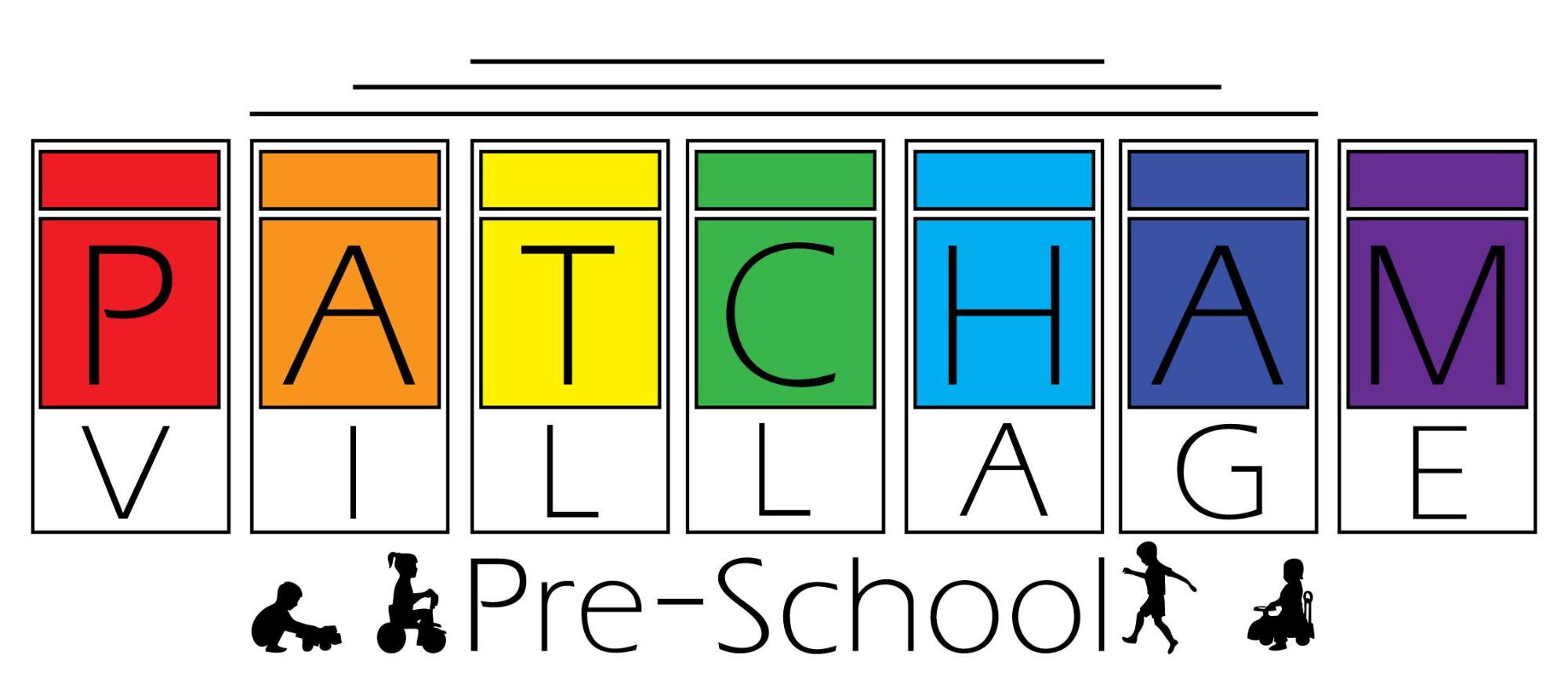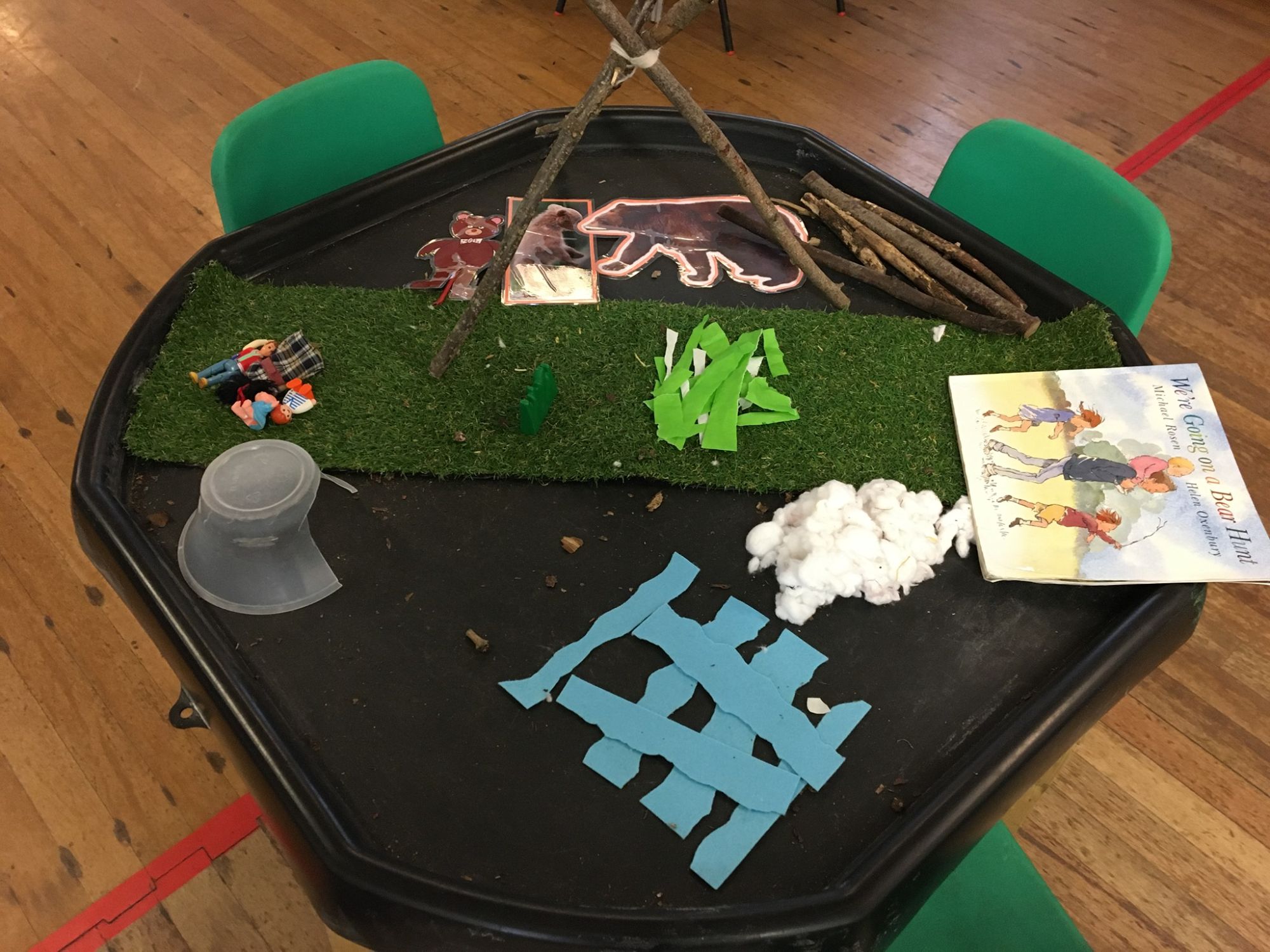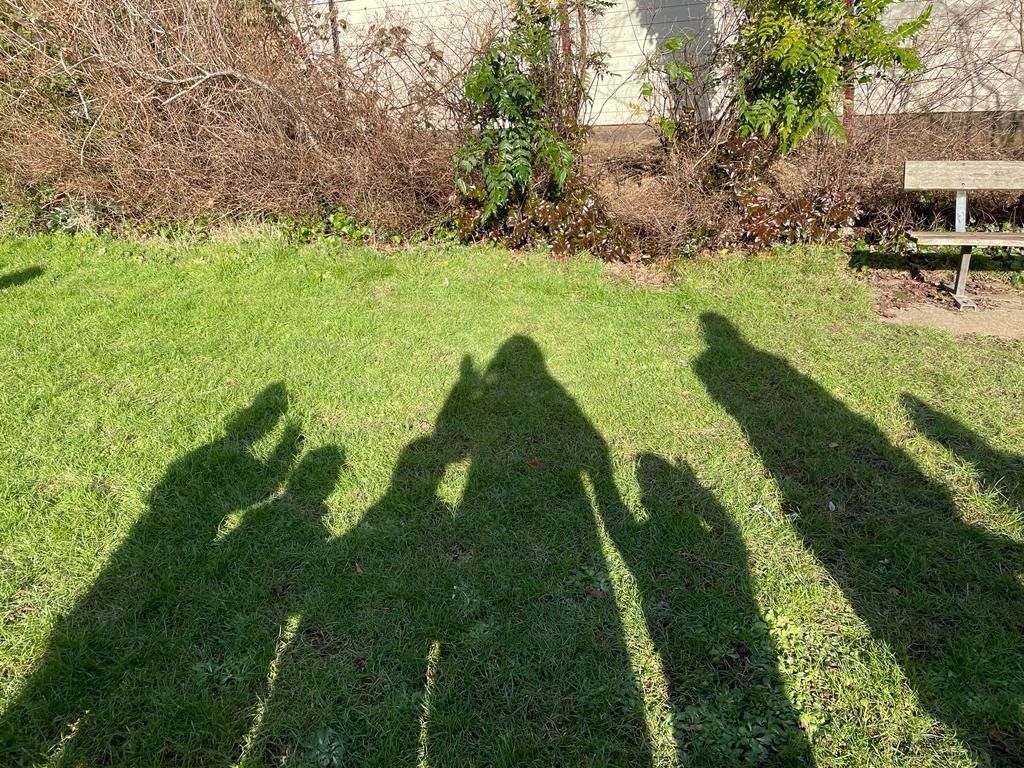2, 3 & 4 Year Old Learning
Mixed Age-Groups
At Patcham Village Pre-school we believe whole-heartedly in the benefits and research that supports children learning and developing together in mixed age groups.
Only at key group times are our children separated; only then by stage not age; for example, at story time some children love to sit and listen to long stories with less pictures, other children, however, prefer a book with less words and more pictures.....Every child is unique.
Children in settings of mixed ages have different expectations of each other. Years of experience of working this way has shown us that younger children look up to the older children in the setting for help, guidance and contribution to their play.
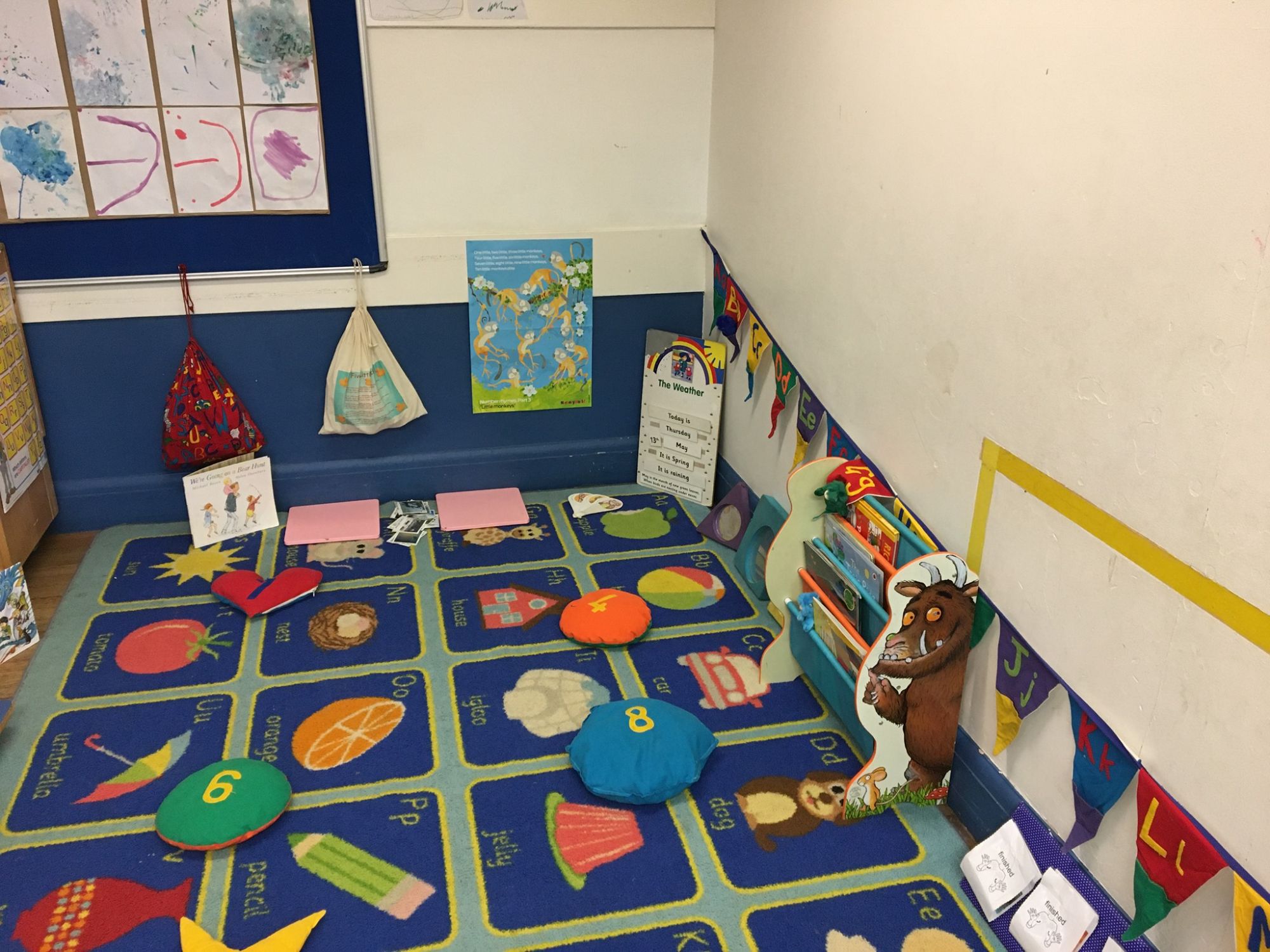
While the older children look upon the younger children to need their contributions and the opportunities to demonstrate to younger children the skills they have already mastered; thus affirming that which has already been learnt and building on self-confidence as they teach others their skills.
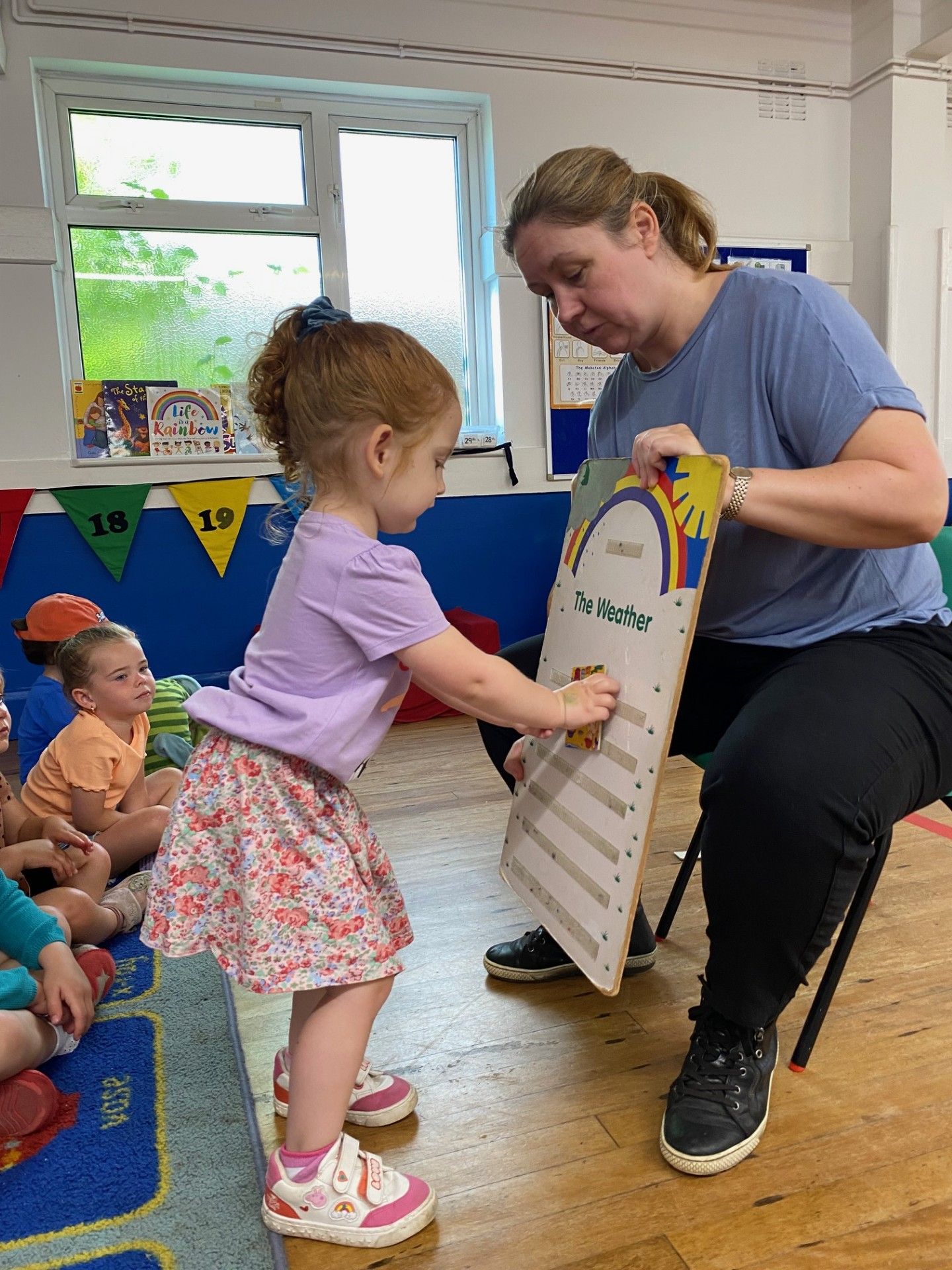
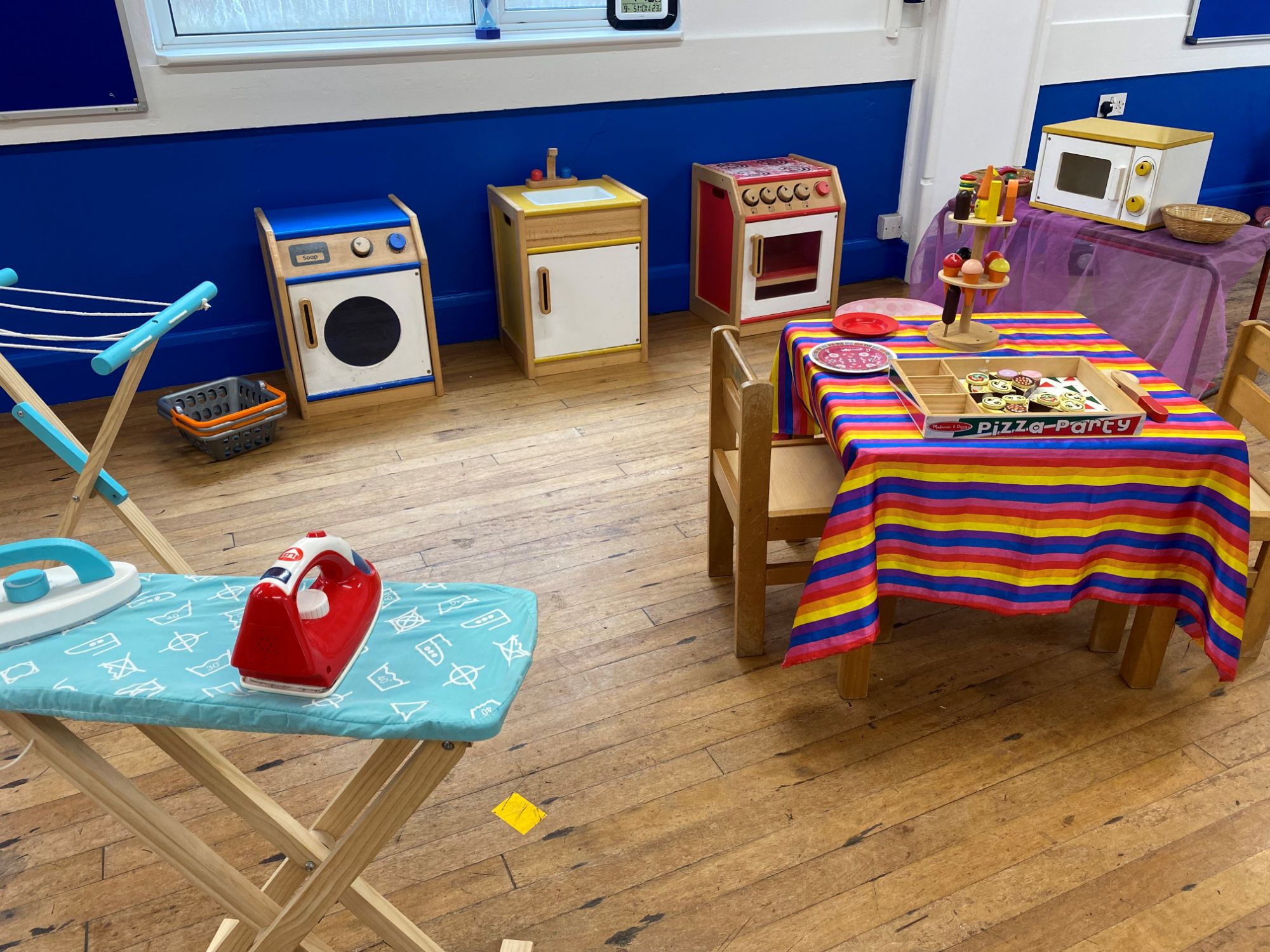
Research carried out by Early years consultant Penny Tassoni identified too that mixed-age group settings have many benefits. At Patcham Village Pre-school we have seen older children gain confidence and empathy, while younger children gain greater ambition to join in and have access to more challenging experiences.
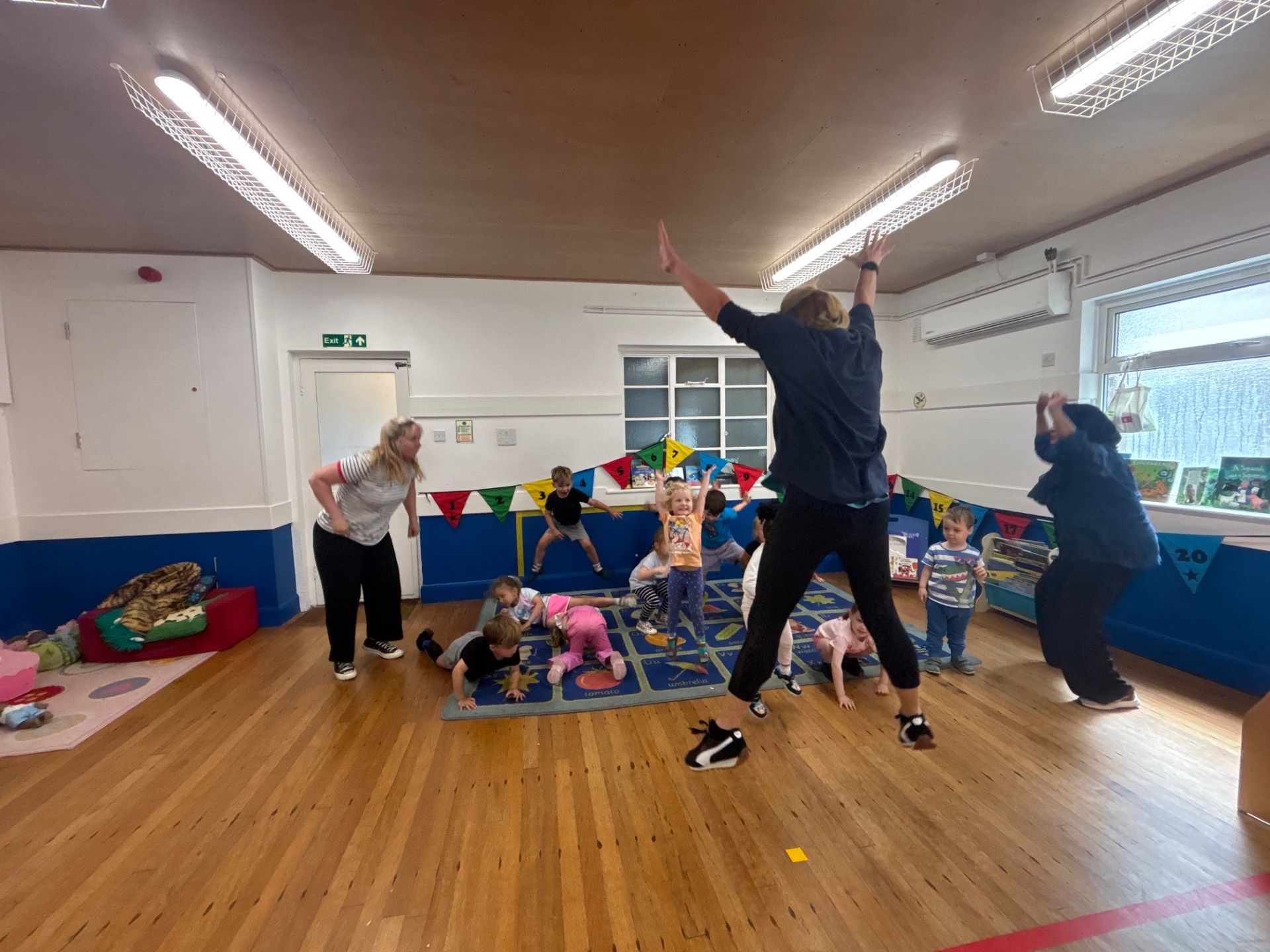
Our Highly skilled staff team understand the importance of differentiating provision according to children’s stages of development and do so outstandingly well.
Our Rising 5's
As children approach that final year before starting reception they aspire to become ‘Tigers’ as they saw others do previously.
It is during this year that our focus is also on school readiness; preparing children for big school.
We liaise closely with all receiving schools, ensuring they know our children as well as we do when they arrive on their first day. We arrange for teachers of receiving schools to visit the children in pre-school and likewise we take children to visit their soon-to-be new school so as they can show us around with a sense of pride.
We prepare children emotionally and practically for school through many activities and experiences, including role-play, small world and hot-seating.
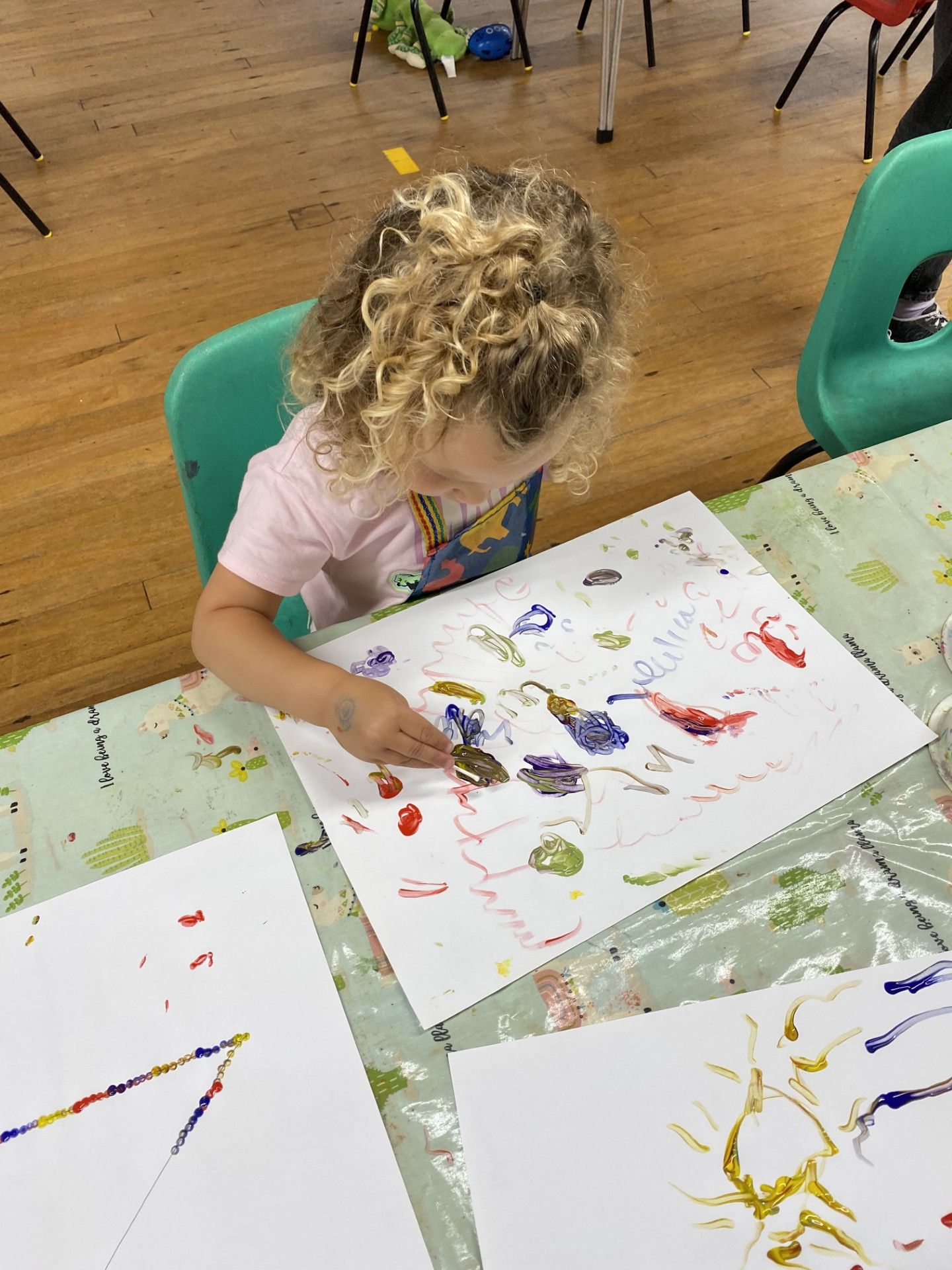
Our role-play area accommodates school uniform sourced from all of the schools children are leaving to go to; this provides the children opportunities to experience the pride and excitement of looking and feeling like they will when they go to school for real.
We replicate school lunch times by providing trays for children to practice carrying (a common anxiety parents tell us children have); this form of role-play provides opportunities for children to act our scenarios and make sense of their world in a safe space.
For staff it provides for us a mirror into children’s minds, allowing us to identify any anxieties children have about starting school, thus helping us plan effectively further activities that lay any such worries to rest.
School Readiness
A common question parents ask as the big day rapidly approaches is; What does “school ready” actually mean?
- Being able to write their own name?
- Being able to read?
- Being able to count?
In fact, it is much more important that your child is secure, independent and has a curiosity about the world around them and a desire to learn.
In discussions with reception teachers from local schools these were the things they felt were important factors of school readiness:
- Being able to go to the toilet independently
- Being able to dress/undress independently; this will help at PE times
- Being able to put on their shoes and coat
- Being independent at meal/snack times including washing hands, carrying a tray, using a knife and fork etc.
- Being able to tidy up
- Being able to sit and listen for short periods of time
- Being able to follow a simple two part instruction
- Being able to recognise their name
What can Parents do to help?
Here are some suggestions:-
- Allow and encourage your child to use the toilet independently, this includes wiping their own bottom!
- Let them dress and undress themselves
- Encourage them to put on their own coats and shoes.
While encouraging these skills try not to put extra obstacles in your child’s way, for example buy school shoes which are easy for the child to put on and take off independently; Velco is a good idea, don’t dress them in shirts with buttons all the way down, don’t put on fiddly belts. We want to encourage independence without the child getting unnecessarily frustrated!
While it is not important for your child to be able to write their name, it is helpful if they are able to recognise their name. At Patcham Village Pre-school we use self-registration to help your child begin to recognise their name. At home, or while out and about, you can point out letters from your child’s name in the environment, on signs etc. There are also lots of activities you can do with your child to encourage pre-writing skills and to build up the strength and dexterity in their hands. For example:-
- Playing with play-doh
- Helping to bake
- Playing with pegs, tweezers, tongs, chopsticks
- Using scissors
- Gardening
- Using art apps on tablets and Ipads
- Drawing with sticks in sand or mud
- Drawing with their finger in flour, glitter, shaving foam etc.
School involves a lot of listening – to their teacher and other adults – so practising good listening skills before your child starts school will help them get off to a great start.
- To encourage good listening be a good listener yourself, so give your child lots of opportunities to talk.
- Read stories together and then ask your child to recall what happened. Research has shown that children who are read to daily do better in all areas of learning.
- Play games that involve listening to instructions, such as Simon Says…
- Go for a listening walk with your child and see what sounds they can hear
- Sing well known nursery rhymes and make deliberate mistakes, children love to spot mistakes and put them right.
